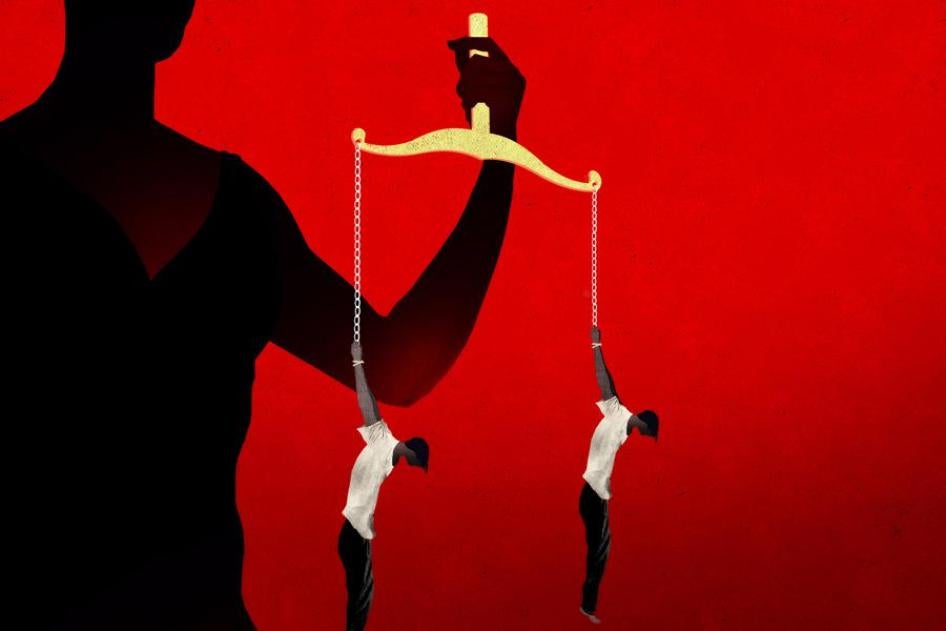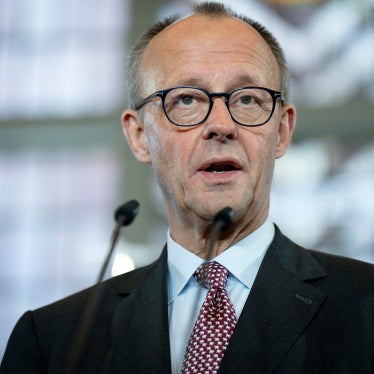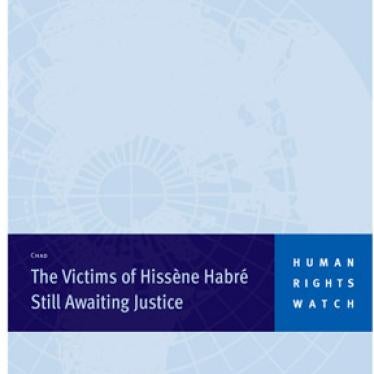(Washington, DC) – The Trump administration’s announced action against the International Criminal Court (ICC) escalates its efforts to thwart justice for victims of serious crimes, Human Rights Watch said today. On June 11, 2020, President Donald Trump issued an executive order that authorizes asset freezes and family travel bans against ICC officials and potentially targets others who assist ICC investigations.
The Trump administration has repeatedly threatened to block ICC investigations in Afghanistan and Palestine that could probe conduct by US and Israeli nationals. The US revoked the ICC prosecutor’s visa in 2019 in retaliation for what was then a potential investigation in Afghanistan. On May 15, US Secretary of State Mike Pompeo vowed to “exact consequences” if the ICC “continues down its current course” – that is, if the court moves forward with a Palestine investigation. The sanctions can be applied on a “case-by-case basis” in relation to ICC investigations of US personnel or personnel of US allies.
“Asset freezes and travel bans are for human rights violators, not those seeking to bring rights violators to justice,” said Richard Dicker, international justice director at Human Rights Watch. “By targeting the ICC, the Trump administration continues its assault on the global rule of law, putting the US on the side of those who commit and cover up grave abuses, not those who prosecute them.”
The ICC is the permanent international court created to try people accused of genocide, war crimes, crimes against humanity, and the crime of aggression. Following the horrors of the genocides in the mid-1990s in Rwanda and in the former Yugoslavia, the international community created the ICC to prevent those responsible for serious crimes, including senior officials, from evading justice. The court has opened investigations in 12 countries. The June 9 surrender to the ICC of Ali Kosheib, a leader of the notorious “Janjaweed” militia who is accused of rapes and attacking and killing civilians in Darfur, after 13 years as a fugitive, is a powerful affirmation of the court’s role, Human Rights Watch said.
The ICC has an open investigation into the grave crimes committed during the Afghanistan conflict. The investigation could include serious abuses by the Taliban and Afghan national forces. Afghan government forces have committed summary executions, forced disappearances, and systematic torture. The Taliban has carried out numerous suicide and other deliberate attacks on civilians, including judges, legislators, community elders, and journalists. The investigation could also include serious abuses by the US military and Central Intelligence Agency (CIA) personnel.
The ICC is a court of last resort, stepping in only if national authorities do not conduct genuine domestic proceedings. The US has conducted some limited investigations into alleged abuses by US personnel in Afghanistan. But senior-level civilian and military officials who could bear responsibility for authorizing these abuses, or failing to punish them, have not been held to account before US courts. Impunity for abuses by US forces has left a devastating legacy in Afghanistan. And CIA-backed Afghan strike forces continue to commit serious abuses there, some amounting to war crimes. Their presence, alongside Afghan forces accused of killing civilians during night raids, forcibly disappearing detainees, and attacking healthcare facilities, demonstrates the long-term consequences of impunity for serious crimes.
ICC officials are considering a number of key issues. In December, the ICC prosecutor concluded a preliminary inquiry into the situation in Palestine, determining that all the necessary criteria to proceed with a formal investigation of alleged serious crimes by Israelis and Palestinians had been met. The crimes could include the establishment of Israeli settlements in the West Bank, since international humanitarian law prohibits the transfer of civilians into occupied territory, and alleged war crimes by the Israeli military and Palestinian armed groups during the 2014 hostilities in Gaza. At the same time, her office sought a ruling from the court’s judges to confirm the scope of its mandate, and a decision is pending. Human Rights Watch has repeatedly urged the ICC prosecutor to open an investigation into the Palestine situation.
The authorities in Afghanistan have asked the ICC prosecutor to defer her investigation, alleging that they can conduct credible national proceedings. Given the repeated failures of the Afghan authorities to hold those responsible for serious abuses to account, it would be very difficult for Kabul to demonstrate that it is conducting meaningful investigations and trials, Human Rights Watch said.
“It’s a bitter irony that even as the US seeks a peace deal in Afghanistan, it retaliates against those seeking justice for the horrific crimes in that conflict,” Dicker said. “In Afghanistan and in Palestine, the ICC could play a valuable role in curbing impunity that has fueled abuses for decades.”
The US, which is not a party to the court’s Rome Statute, objects to the ICC’s jurisdiction over nationals of non-member countries, absent a referral to the court by the United Nations Security Council. Afghanistan, however, is an ICC member country, giving the court authority to investigate and prosecute crimes committed by anyone – regardless of nationality – on Afghan territory. The court’s authority is nothing unusual. US and other citizens who commit crimes abroad are already subject to the jurisdiction of foreign courts.
On January 2, 2015, Palestinian authorities transmitted a copy of Palestine’s ICC accession instrument to the United Nations Secretariat. The ICC treaty officially went into effect for Palestine on April 1, 2015, giving the court jurisdiction over serious crimes in violation of international law, including war crimes and crimes against humanity committed on or from Palestinian territory. Israel is also not a member of the ICC.
The ICC’s 123 member countries have repeatedly confirmed that they are “undeterred by any threats against the [c]ourt, its officials, and those cooperating with it,” and will “stand united against impunity.” It is essential for member countries to speak out to make clear that they remain strong in their support and will work together to resist US attempts to block justice, Human Rights Watch said.
“The ICC certainly has its limits, but it embodies the expectation that those who commit serious crimes will be held to account at fair trials,” Dicker said. “In the face of shameless US efforts to block justice, the court’s member countries need to step up and defend it.”
|
News Release
US Sets Sanctions Against International Criminal Court
Trump Executive Order Seeks to Thwart Justice for Victims
Your tax deductible gift can help stop human rights violations and save lives around the world.
Region / Country
Most Viewed
-
June 3, 2025
“They’re Ruining People’s Lives”

-
January 25, 2024
“We’re Dying Here”

-
November 25, 2019
A Dirty Investment

-
April 27, 2021
A Threshold Crossed

-
November 19, 2012
Losing Humanity





